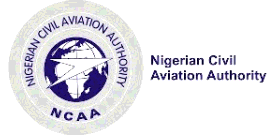 Nigeria’s Aviation Regulator Puts Passenger Experience and Airline Practices Under the Spotlight
Nigeria’s Aviation Regulator Puts Passenger Experience and Airline Practices Under the Spotlight
In a decisive step toward improving Nigeria’s domestic air travel landscape, the Nigeria Civil Aviation Authority (NCAA) has called all local carriers to a high-stakes meeting in Abuja, scheduled for tomorrow. This gathering comes at a pivotal moment as the industry grapples with rising passenger expectations, operational challenges, and the need to restore public trust in air travel across the nation.
The agenda for this meeting is comprehensive, reflecting the NCAA’s intention to address some of the sector’s most persistent pain points. Top of the list is the growing issue of unruly passenger behaviour. Airlines and regulators alike have noted a marked increase in incidents that disrupt flight operations and compromise both safety and crew morale. The NCAA will work with airlines to strengthen incident response protocols, ensuring both passenger rights and crew welfare are safeguarded. This collaborative approach aims to strike a balance between firm enforcement and a customer-centric ethos—an evolving standard for Africa’s aviation industry.
Equally pressing is the subject of refunds and compensation. With unresolved refund claims and delayed compensations remaining a source of friction between airlines and clients, the NCAA is prioritizing the establishment of fair, transparent, and timely resolution mechanisms. For travel industry professionals, this move could prove transformative, leading to increased confidence among travellers and smoother post-flight customer care processes.
Modernization is also on the agenda. The NCAA plans to introduce RFID-enabled bag tags and advanced flight monitoring systems to enhance baggage tracking and operational transparency. These technologies are expected to reduce lost luggage cases, streamline airport processes, and provide real-time flight information—key improvements for both airlines and their passengers. By embracing such innovations, Nigeria signals its readiness to align with global best practices in aviation technology, a move likely to inspire similar investments across sub-Saharan Africa.
Another focal point is the enforcement of passenger safety protocols, particularly regarding the mandatory switching off of mobile phones during flights. The NCAA aims to improve compliance through both education and enforcement, ensuring that all travellers respect safety rules and that cabin crew are empowered to carry out their duties without unnecessary risk or conflict. Enhanced protection for cabin crew will also be discussed, with a view to creating a safer, more professional working environment.
Mr. Michael Achimugu, Director of Public Affairs and Consumer Protection at the NCAA, underscores the agency’s commitment to a holistic improvement of the passenger journey. This meeting is not just about tightening regulation, but about building a culture of accountability, technological advancement, and shared responsibility among all stakeholders in the aviation value chain.
Importantly, the NCAA is ensuring transparency by broadcasting the proceedings live on its official social media platforms (@NigeriaCAA on X and Facebook), inviting the public to follow along in real time. This open approach not only boosts public trust but also sets a new benchmark for regulatory engagement in the region.
For Africa’s travel sector, this proactive stance from one of the continent’s largest aviation markets is a strong indicator of the changes shaping the future of air travel. With regulatory authorities, airlines, and passengers all working towards common goals—safety, efficiency, and customer satisfaction—the groundwork is being laid for a more resilient, modern, and traveller-friendly aviation industry across Nigeria and beyond.
